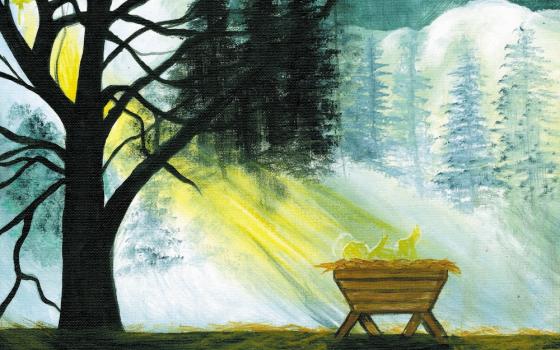The U.S. District Court is a modern edifice less than a block away from the iconic Liberty Bell. Throughout the day tourists queue up to see this symbol of the passion for freedom felt by a young nation opposed to tyranny. The bell’s inscription is heartwarming: Proclaim Liberty throughout the Land unto all the inhabitants thereof (Lev, 25:10). These words were a rallying cry for the abolitionist movement in the 1830s, and in the late 19th century the bell traveled around the country to expositions designed to help heal the divisions of the Civil War. It has remained in place since 1915, a constant reminder of the need for and power of liberty. But neither the bell nor the virtue it proclaims is flawless. Since its arrival from England, the Liberty Bell has been cracked. Efforts to repair it have failed. And efforts to proclaim liberty have been damaged by values informed by bigotry and ignorance.
Throughout the month of June, the Hon. Judge Joel Slomsky heard a case in a courtroom on the nearby district court’s 15th floor. In the absence of a jury it will fall to this judge to decide the fate of David Paul Hammer who is undergoing a retrial for the murder he committed (allegedly by accident) in a Pennsylvania prison 18 years ago. The judge will either reimpose the death sentence that had been vacated by a different judge nine years ago, or assign him life without parole.
The prosecution, of course, is trying to show the worst of Mr. Hammer through the years; the defense is attempting to demonstrate the positive changes in his character and behavior. Four Sisters of Mercy from the Mid-Atlantic region, myself included, were called to testify. And on these June days, the evidence centered on Christmas cards, the ones David Hammer has offered, adorned by his artwork, since the year 2000 (and marketed by this writer). All proceeds – many thousands of dollars – have gone to help children in need and at risk.
I've known David Hammer since December 1998, when he was awaiting a January 14, 1999, execution. Because of my work with the Cherish Life Circle, he contacted me from Allenwood, Penn., looking for someone to pray for him and his victim. Since then I have seen him a few times each year.
My three companions are recipients of some of the Christmas card earnings, which they use for their work. They are Sr. Karen Schneider, a pediatrician with Johns Hopkins with expertise in treating impoverished children in tropical climates; Sr. Kay Crumlish, executive director of Mercy Home; and Sr. Breige Lavery, executive director of the Dorothy Bennett Mercy Center. Both of these places serve needy populations in Brooklyn, N.Y.
These three were interviewed for only a few minutes each. I, on the other hand, was on the stand for a total of three hours over two days. Throughout, the prosecutor limited her assessment of Mr. Hammer’s behavior to the years before 2004. She made no reference to the positive aspects of his life since then. At times she seemed to be grasping at straws. For example, she implied that his confirmation as a Catholic was useless because of negative choices he has engaged in since then, October 2000. My reply was that no sacrament assures the recipient of future flawless behavior.
A member of Mr. Hammer’s defense team was annoyed by what she considered the prosecutor’s badgering of me. She later asked, “Doesn’t she know that anyone who attacks a nun goes straight to Hell?” She was, of course, just kidding.
While the prosecutor may have come to appreciate the bit of information with which I countered her observations, I absorbed a few facts about the limitations imposed on a witness under cross examination. As the court recessed on Monday afternoon, planning to resume questioning me the following morning, I turned to thank the judge.
Before I could do so, he said, “I’m not allowed to speak to you.”
Members of Mr. Hammer’s defense team all responded in the same way when we met on the corridor or on the street. I was so glad that my cousin, Sr. Stella Auricchio, CSJ, had accompanied me, so that I would have someone in the state of Pennsylvania to talk to.
As I remember these events back in my apartment in Glendale, Queens, the trial is over, but prayers continue from the many who understand the value of mercy seasoning justice.
We are in a time of waiting. Without a jury trial, the decision to reimpose the death penalty or change it to life in prison without parole is in the hands of Judge Joel Slomsky.
[Mercy Sr. Camille D'Arienzo, broadcaster and author, narrates Stories of Forgiveness, a book about people whose experiences have caused them to consider the possibilities of extending or accepting forgiveness. The audiobook, renamed Forgiveness: Stories of Redemption, is available from Now You Know Media.]


